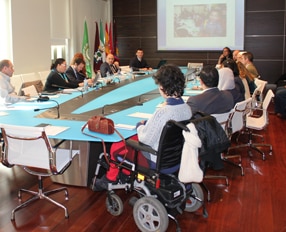
On Monday, November 25, the Center for Middle Eastern Studies of the FPSC (CEMOFPSC) organized in the Arab House of Madrid, the roundtable “The Arab Decade of Disability: achievements and prospects”, to provide greater understanding by the Spanish public about the enormous difficulties that hundreds of thousands of disabled people face in this part of the world.
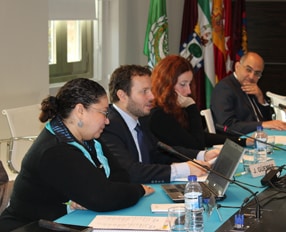
Participants in the roundtable Javier Guemes, Deputy Director of the European Disability Forum (EDF) as moderator; Alberto Bocanegra, Chief of Mission of the FPSC in Beirut, Georges Xanthopoulos, Director of Mobility and Employment Arcenciel (Lebanon); Annie Mezagopian Executive Director of Al Hussein Society (Jordan); Margritte Saroufim, Director of Local Development Coptic Evangelical Organization for Social Services (Egypt) and Zeinab Khaula, Founder and President of the Board of Yadan Bi Yad (Syria), as lecturers.
The presentations of the five speakers focused on achievements and new prospects opened by the end of the Arab Decade for people with disabilities, focusing on the case of Lebanon, Jordan, Egypt and Syria.
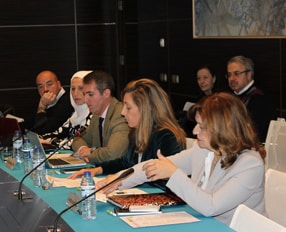
Alberto Bocanegra, FPSC Head of Mission in Lebanon, offered a broader view of the issues on which it is based the Development Agenda Post-15: The World Report on Disability 2011 presented at the UN General Assembly last September in new York, which gives an overall picture of the situation of people with disabilities, and aims to support the implementation of the Convention on the Rights of Persons with Disabilities 2006.
Georges Xanthopoulos, Arcenciel (Lebanon), confirmed that in terms of disability they are still monitoring the implementation of the rights of PWD contained in the laws of his country. He also described the Website created under the agreement to improve the integration of people with disabilities in the Middle East, www.accessibilityforpwd.org, in collaboration with the ONCE Group TECHNOSITE as the first in the region that includes technology adapted to the PWD.
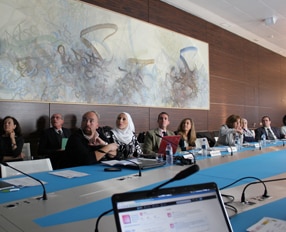
Annie Mezagopian, AHS (Jordan), emphasized in her speech that health services in her country meet the needs of 80% of the population. The Jordanian authorities have approved tax exemptions for people with disabilities.
Jordan was the first Arab country to sign the Convention on the Rights of the Disabled and is a reference in this field in the Middle East.
Margrit Saroufim, CROSS (Egypt), claims that there is a good law in her country for the PWD but has not been implemented.
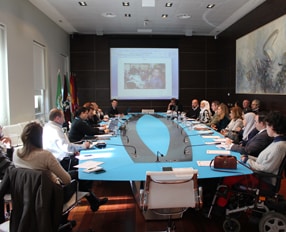
Finally Khaula Zeinab, Yadan bi Yad (Syria), took the floor making an analysis of the reality of Syria on disability before and after the crisis.
Among other measures adopted before the beginning of the crisis, it was the creation of a special identity card for PWD which guaranteed free access to health and education.
She highlighted the vital role of the civil society, the respect for the mechanisms of rights and the support of the international community.
The situation of PWD in Syria today is aggravated by the emigration of doctors, lack of drugs and the inability to import them.
During the debate the participants exchanged opinions and different points of view on the challenges and potential opportunities in the field of disability in the Region.
The conclusions will be published in the website of the Center for Middle Eastern Studies of the Social Promotion of Culture Foundation (CEMOFPSC).

